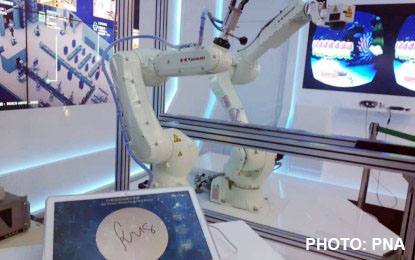Under and through the Corporate Recovery and Tax Incentives for Enterprises (CREATE) Law, the Philippine government now provides generous fiscal incentives for investments in new technologies.
At the European Chamber of Commerce of the Philippines (ECCP) business forum recently, Department of Trade and Industry (DTI) Undersecretary Rafaelita Aldaba said the CREATE Law is aligned with the agency’s industrial policy of providing incentives that will promote investments that will push for a fourth industrial revolution.
“The Corporate Recovery and Tax Incentives for Enterprises Act provides support measures for innovative projects that companies could access as they implement their industrial transformation plans,” she shared.
Aldaba said under the CREATE Law, Tier 3 activities are given the longest period for income tax holiday (ITH), special corporate income tax (SCIT) of 5% for export enterprises, and enhanced deductions.
Export enterprises with investments in Tier 3 activities within Metro Manila are qualified for six years of ITH and seven years for investments outside Metro Manila, and another 10 years of enhanced deductions and SCIT.
For domestic market activities, the government provides six years of ITH for investments in the National Capital Region (NCR) and seven years for investments outside NCR, and five more years for enhanced deductions and SCIT.
Tier 3 investments include those adopting advanced digital production technologies of the fourth industrial revolution; producing equipment, parts, and services that embed new technologies; and engaging in research and development (R&D) activities and commercialization of R&D leading to accelerate innovation and “increase the added value on products and services.
These include investments in robotics, industrial biotechnology, additive manufacturing, photonics, advanced materials, nanotechnologies, advanced manufacturing, artificial intelligence, mobility, blockchain, cybersecurity, satellite technology, big data, Internet of Things, augmented and virtual reality, micro and nanoelectronics, and cognitive technology.
Aldaba also urged enterprises including micro and small enterprises to utilize new technologies to improve their business operations.
“As expected, micro and small enterprises have the lowest technology utilization scores,” she said.
The trade official cited barriers for small-scale businesses to invest in new technologies such as lack of financial capability, market conditions, poor digital infrastructure, and lack of skills, knowledge, and expertise.
“New technologies like AI are not here to destroy jobs or replace humans but to create new jobs and change what work looks like, augment human intelligence and skills and make our workplaces safer,” Aldaba added. (PNA)










